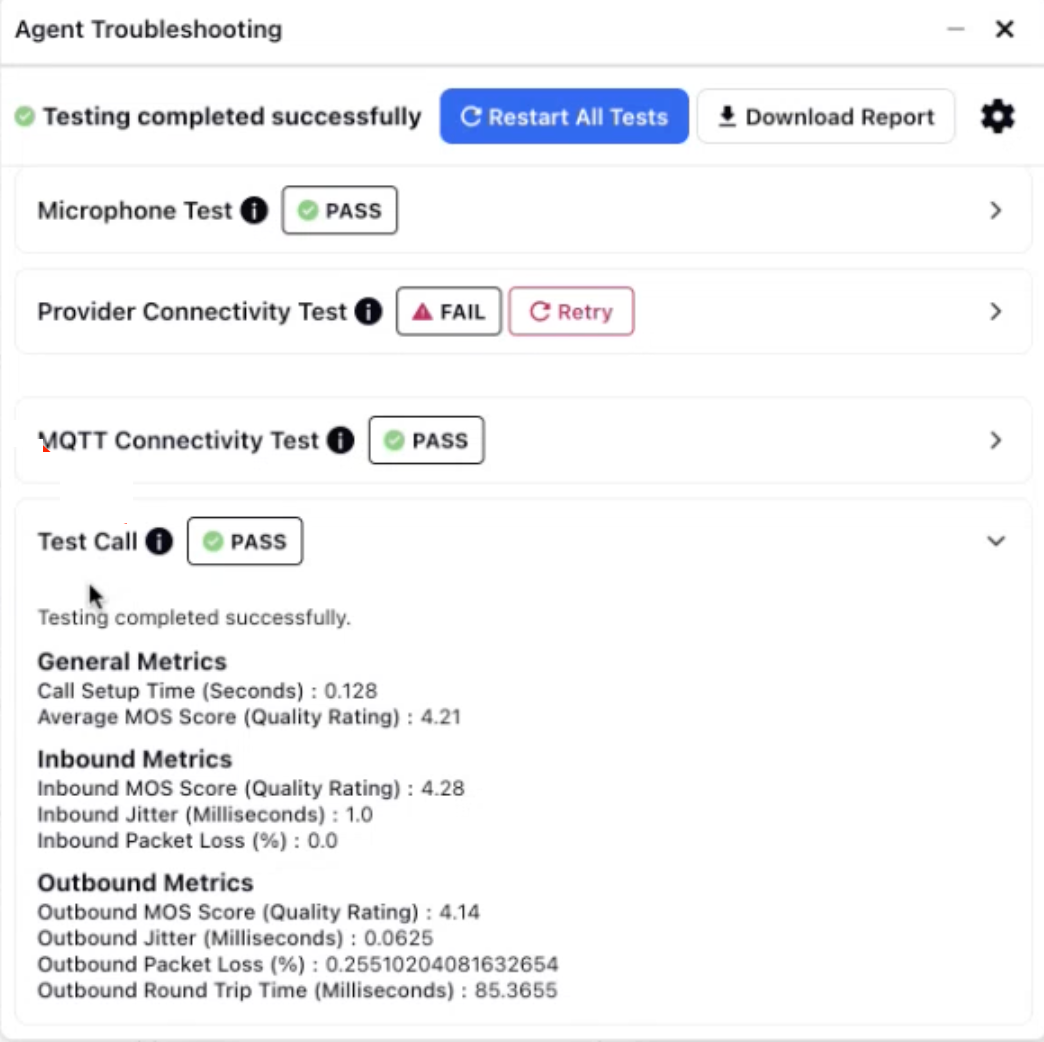Agent Network and System Readiness Tool
Updated
The Agent Network/System Readiness Tool is designed to help agents diagnose and resolve system, network, and hardware issues that disrupt call quality. By providing a simple and efficient diagnostic mechanism, the tool improves agent productivity, ensures seamless customer interactions, and minimizes downtime.
The tool empowers agents and support teams to perform quick tests, identify root causes of issues, and take corrective actions promptly, thus enhancing overall operational efficiency and customer satisfaction.
Note: To enable this feature in your environment, reach out to your Success Manager. Alternatively, you can submit a request at tickets@sprinklr.com.
Running Tests in the Agent Troubleshooting Window
You can run various diagnostic tests to identify the problem in the network by following these steps:
On the Home screen, navigate to your profile.
Click Troubleshoot from the drop-down. The Agent Troubleshooting window appears.
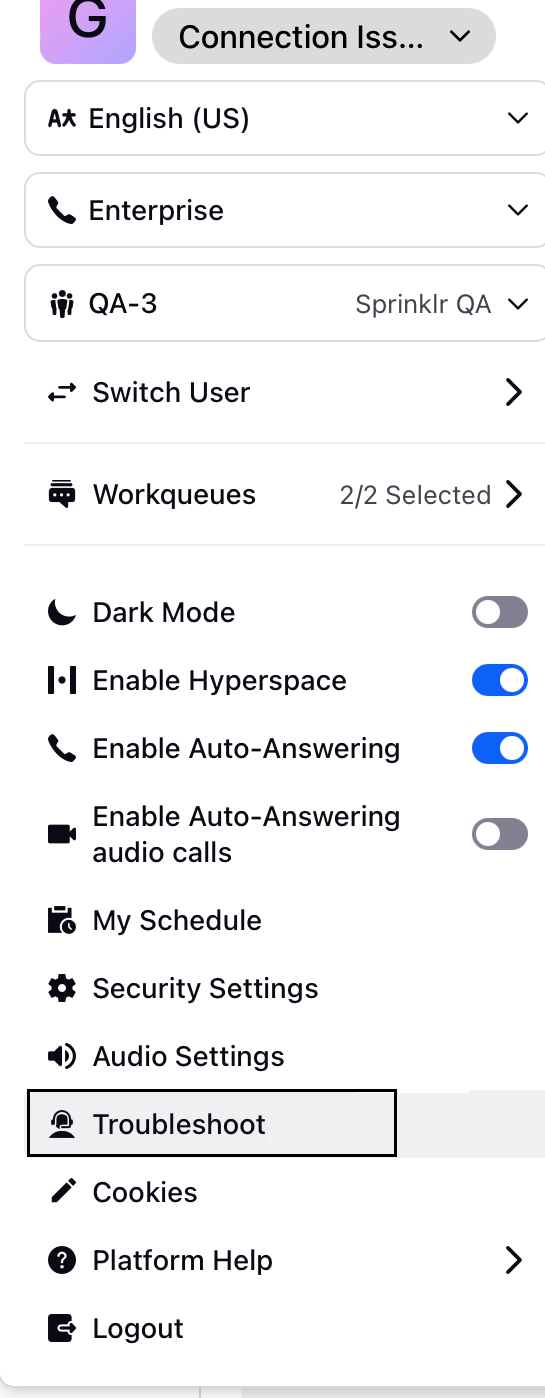
Before starting the test, click on the gear icon to open the Settings dialog and ensure that the required options are set.
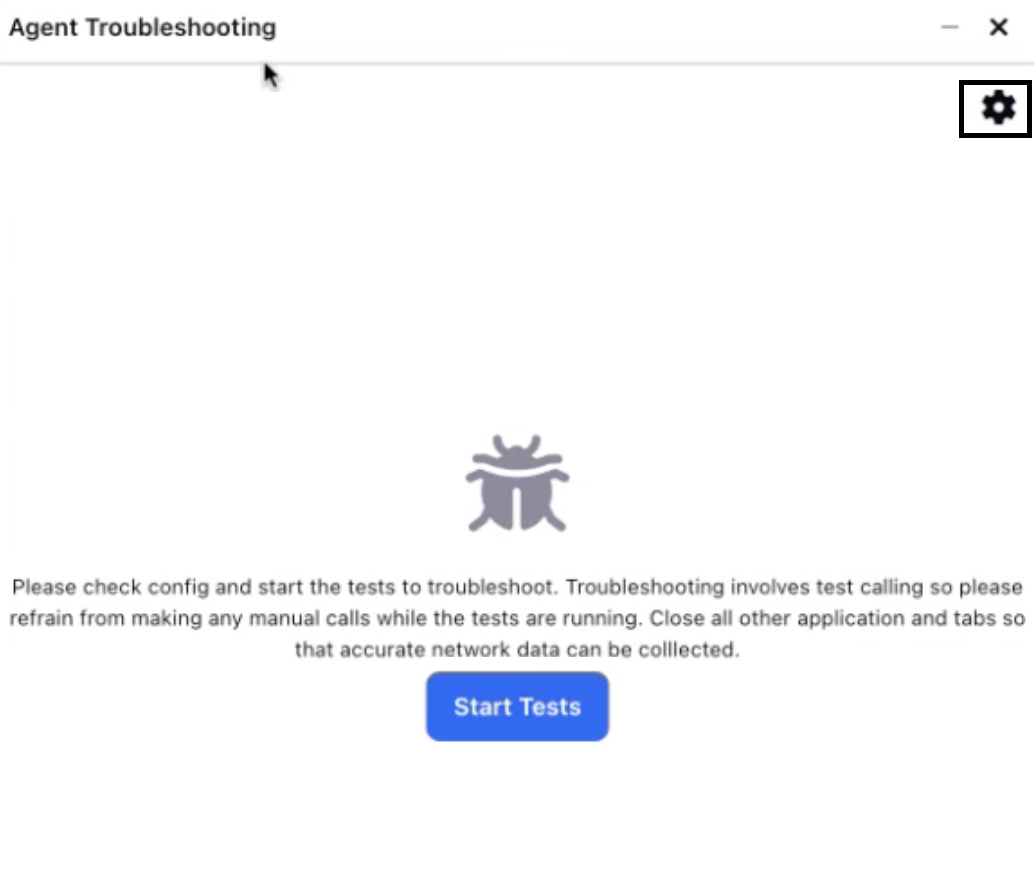
The following fields are available in the Settings dialog.
Microphone - Verify and select the correct microphone input. Additionally, you can test the speaker by playing a sample sound to ensure it is working properly.
Voice Application - The last used Voice Application (inbound or outbound) will be selected. If unavailable, the first shared Voice Application will be used as a fallback. You can also select the preferred Voice Application from the drop-down.
Note: If you don't select any values for Microphone or Voice Application, by default, the last used voice application will be selected. Otherwise, the first available voice application will be chosen for test calls.

In the Agent Troubleshooting window, click Start Tests to run the test.
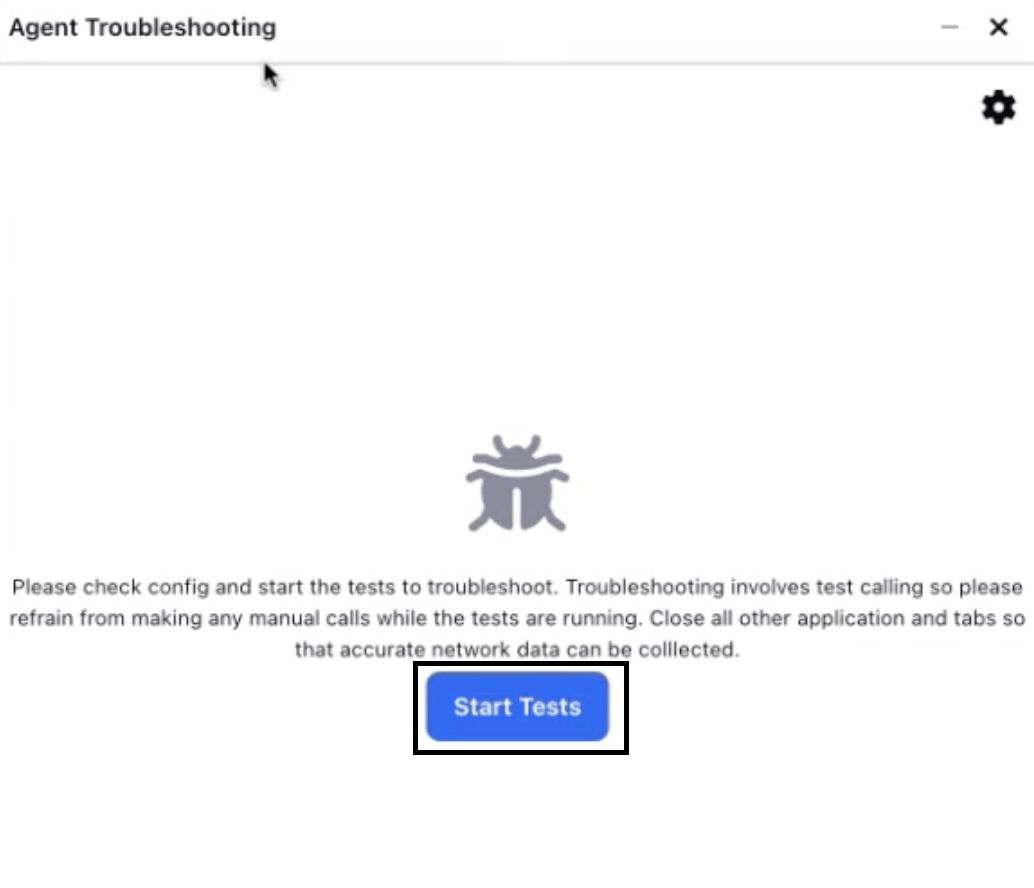
Note: The Start Tests option will be available only if you are not on a call and your status is set to something other than "Available".
Clicking on Start Tests will run tests simultaneously for all the fields listed in the Agent Troubleshooting window.
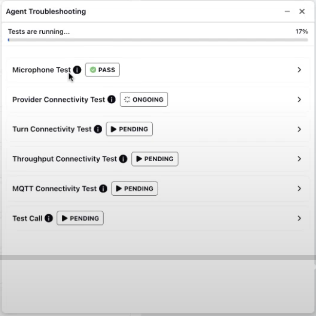
Note: Click the expand icon to view more information for each test.
The following table provides information on various fields available in the Agent Troubleshooting window.
Fields | Description |
Microphone Test | Verifies that the browser or system has granted the necessary permissions to access the microphone and verifies if the microphone is connected. |
Provider Connectivity Test | Provider Connectivity Test is used to test if there are any issues with the voice service provider's connectivity. The section provides information on Offline Voice Applications and Total Voice Applications. Click on the expand icon and then click on More Details, the Connection Status page appears that lists the voice applications and specifies whether or not the voice applications are connected.
|
Turn Connectivity Test | Turn Connectivity refers to the process of establishing a network link between two endpoints using a TURN (Traversal Using Relays around NAT) Server. There are three protocols in Turn Connectivity:
This Checks network connectivity to the configured TURN server, ensuring reliable audio during calls. The values under Result indicate the time taken to establish a connection using the TURN server using respective Transport protocols.
The TURN Connectivity details are displayed only if the Voice Application used is SignalWire. |
Throughput Connectivity Test | Throughput refers to the amount of data successfully transmitted across a network for a specific session or set of sessions within a given time frame.
|
MQTT | Tests the MQTT (Message Queuing Telemetry Transport) protocol for maintaining a stable connection between your(Agent) device and the Sprinklr platform. All 3 connections below are checked and we receive time to connect to MQTT and RTT for each.
This is to ensure real-time notifications for calls and updates are working properly. |
Test Call | The Test Call details are available only for Sprinklr Voice Connect, SignalWire, and Twilio voice applications. It evaluates the call quality by initiating a test call. You can then speak something, and it will echo back, allowing you to check if the voice is clear and understandable. This will be a 10 sec short call. It will also display the following metrics:
|
After successful completion of tests, you can restart the test or download the report using the Restart All Tests and Download Report options.
Restart All Tests
You can restart the test by clicking on Restart All Tests. The Restart All Tests option runs all the tests. However, if a specific test fails, there is no need to rerun the entire test suite. You can simply retry the failed test individually.
Download Report
After successful completion of tests, you have the option to download the report using Download Report.
